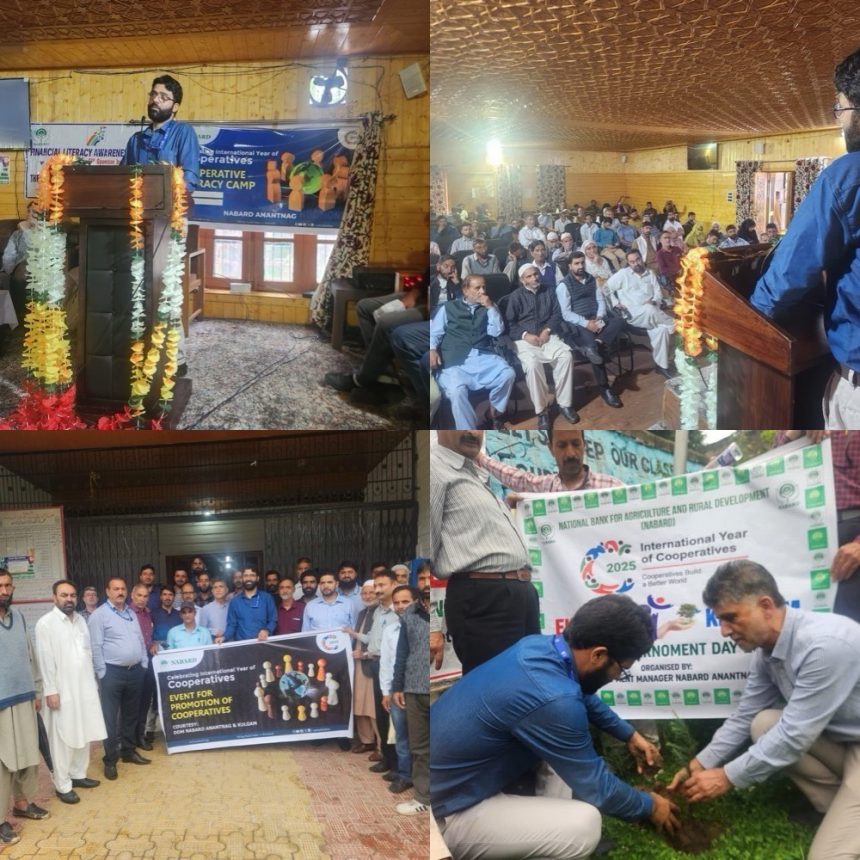Anantnag, Jul 16: The National Bank for Agriculture and Rural Development (NABARD), in collaboration with the Department of Cooperatives, celebrated the International Year of Cooperatives (IYC) at Anantnag, coinciding with NABARD’s 44th foundation day. The event aimed to highlight the vital role of cooperatives in socio-economic development and brought together stakeholders from the cooperative ecosystem.
The programme was inaugurated by Rouf Zargar, District Development Manager, NABARD, and attended by Muzaffar Ahmad, Deputy Registrar of Cooperatives, along with Assistant Registrars from various cooperative blocks, staff members of District Cooperative Central Bank (DCCB), representatives of Agro Farm companies, and members of Primary Cooperative Societies.
In his keynote address, Zargar emphasised the significant contribution of cooperatives in empowering rural communities and promoting inclusive growth. He explained that the International Year of Cooperatives, designated by the UN with the theme “Cooperatives Build a Better World,” recognises cooperatives’ role in achieving sustainable development goals.
Zargar highlighted several key initiatives by the Ministry of Cooperation, Government of India, including the computerization of Primary Agricultural Credit Societies (PACS), formation of 2 lakh multipurpose PACS, adoption of model bylaws and SOPs, development of a cooperative database, geo-tagging of societies, and various training and capacity-building programs through the National Council for Cooperative Training (NCCT). He urged district cooperative societies to actively engage with these schemes to align with the broader national cooperative growth agenda.
Muzaffar Ahmad, Deputy Registrar of Cooperatives, also addressed the gathering, sharing details of flagship schemes launched by the UT Government to strengthen cooperatives, such as the revival and rejuvenation of dormant cooperatives, support for cooperative marketing and processing units, and women-led cooperative schemes. He encouraged youth and women to leverage these initiatives to build sustainable livelihoods through cooperative entrepreneurship.
As a symbolic gesture promoting environmental awareness, a tree plantation drive was organised under the “Ek Ped Maa Ke Naam” initiative. Dignitaries and participants planted saplings, reaffirming their commitment to environmental preservation and community development. The event concluded with a pledge to uphold cooperative values, foster environmental responsibility, and work towards a self-reliant and inclusive rural economy.








